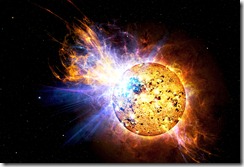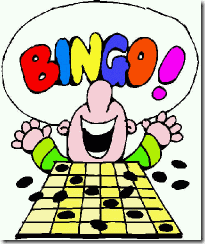Fiction-Zone: Leaps in Fiction Mastery by Diane Holmes, Chief Alchemist of Pitch University
Power Moments

Writers talk about theme as if it’s a mystical addition that makes you, the writer, look deep.
I’m all for looking deep. It goes so well with my eyes, but let’s look at the practical side of theme.
Your theme tells you, the writer, where and what kind of POWER MOMENTS to include in your plot.
Your theme comes to life through the actions of characters over the course of Story Unfolding. And how does a story unfold? In specific scenes that create the cause and effect of plot.
Theme becomes real only when it becomes the events and turning points of your story.
To read more about this, you’ll want to check out Turns Out Theme is Actually Good for Something (this just in).
To put this another way, what is your story?
- It’s the trajectory of your theme.
- It’s theme tested over time.
- And in the end, the climax of your book the culmination of choices and actions tell the reader exactly how your theme is true.
I know, I know. You think them has to do with character and internal angsty stuff, like “what the character needs to learn.” But it has to be more than that.
Without focused action, scenes that bring together to culmination of all the causes and effects that have gone before (hello Power Moment), that angsty stuff is just talk.
You’re confused, I know. This isn’t what you were taught in the past. I hear ya. Me, too. I’ve heard the talks, read the articles, and bought the t-shirts.
In 3 Definitions of Theme I’d Like to Flush I very politely trussed up, set on fire, and catapulted the commonly taught definitions of theme out to sea, to die-die-die. The bundle made a nice sizzle as it hit the water’s surface somewhere over by Australia. The Coral Sea, maybe. Hard to tell from here.
Why did I do this?
At best, these pretty unhelpful definitions create over-arching theme categories. Groupings of themes for the purpose of collecting them into genus and species.
But I think the theme for your book has a useful meaning that is much more specific to you and your story.
We’re talking Power Moments, baby. Scenes, characters, gritty essentials.
The One Thing That Matters? The Reader.
That’s right. If you have a theme, then your plot is the way the reader experiences your theme.
I thought a quick reminder of that would prove helpful. Theme gets so self-involved for authors, and it is. But it an exercise in therapy if you never move past what you the author want to do and embrace the reader’s experience of your story.
So keep that always in mind. Theme needs to be useful to you as the creator of your specific story, but it ultimately must mean something to the reader in order for it to really exist in something other than your head. Or to be more than characters caught up in their own heads.
Surely story and theme must be more than you or your characters thinking and mulling over stuff. It’s more than journaling. More than FaceBook posts of random thoughts.
That’s why I’m talking about things you can point to on the page. Scenes and plot. Power Moments.
Theme Explores the Infinite Complexity of Experiences
Let’s take a break for a moment from scenes and actions and take a look at the big picture of story. Any story? No. Great story.
No matter how simple, no matter how focused on entertainment, great stories have…
- impact,
- meaning, and
- resonance
…for both the reader and the author. This, I’d like to suggest, is the proof of theme.
Theme is about how your characters cope, how they parse together a reality lived over time into something that defines who they are and what actions they’ll take all the way to the end (and beyond).
It’s a lens you can use to make sense of the story world and of the events that have led you to “here.”
It’s what they’ve been hitting up against over and over that’s hard work, invites resistance, and is worth the effort.
Or maybe it’s trap that is only illuminated with 20-20 hindsight and a trail of broken stepping stones.
***Theme is the effect and understanding (of your character and reader) of every single event in your story so that, in the end, the experiences of the character and the reader coalesce, as if caught by your story’s gravity into a simple pattern that captures a life-time of understanding.
Bingo. Now you understand how the big picture of theme and story relates to the little picture of events, actions, and scenes
What creates all the complexity of experience that leads to this simple understanding?
Answer: The specific scenes you choose in the plot that will tell your story.
So at the end of the day, when you or your reader really…
- “gets” your story,
- “gets” what it’s all been about, and
- “gets” what you’ve been exploring over the course of all those pages…
What is it that you say?
The answer is your theme and (hint) it doesn’t have to be a simple, streamlined answer.
Let’s Get Useful (again)
Let’s take an example from my first article: 3 Definitions of Theme I’d Like to Flush. Let’s say you want to write about loss.
Great, tell me about how you’ll explore loss.
Tell me more: I’m exploring how sometimes the loss of stability can never be recovered until you acknowledge that it’s gone and there was nothing you could do to stop from losing it.
Even more: I’m exploring how people get their sense of stability from the places that felt “safe forever” and how losing that place means you don’t feel safe in the world.
More, more, more: I’m exploring how the idea of home, for many of us, is a time and place that doesn’t exist any more, and how it is that you can create a new sense of home when you can’t go back.
When you lose your safe place, your home, you lose your sense of self and who you are. And this fallout can be triggered even long after you think you’re successful and happy.
Who are you when you’re un-tethered like that, no longer belonging to that school or the friends on that street? Who are you when you’re older now and it happens again?
How do you learn to put down roots when you’ve never see it done?
Do you ever really allow yourself to feel like you have a home or feel safe?
And then what is the ending realization of that theme in this story? I’m exploring how loss of home, loss of stability and safety, can’t be re-created by owning another home. The world is tenuous. Feeling at home in the world is a decision. Feeling safe is a decision. And more than that, it’s created out of everyday actions that create these things for yourself and others. It takes strength and resolve and commitment. And it takes courage.
You might one day have that sense back, but until then, use your courage and do the work of creating a place to call home.
—-
Real Life Example
I was recently asking my writing friend Marcy to tell me the theme of her book, in order to help provide her with specific feedback and brainstorming on future scenes. I speculated on possible themes:
- Do you see this as a book about family, the importance of family including your larger community family, protecting family, creating family, the lengths you’ll go for family, that sort of thing?
- Or is this a book about “leaving home,” that place where you thought you belonged, but you don’t; leaving behind ideas and thoughts, being thrust out into the world, being forced to exit childhood and enter adulthood?
- Or is this a book about going on a quest for the truth that’s hidden behind the surface, the truth you must have, and yet the truth that can be very painful and ugly? And it changes your life forever?
- Or is this the story about learning to stand up, to take on the mantle of right and to fight for that no matter what it costs? So it’s a story about being called into action and leading the way?
- Or is this a story about how people fail us and fall short, and how we have to carry our own light, be our own True North?
- Or is it a story about justice and what is right, and what we individually have to do when we know that?
Now, imagine a Power Moment from each of these possible themes. Notice how they’re not the same at all.
Notice how your theme creates specific scenes, contributes to specific story arcs (structure), and communicates very specifically with a reader’s expectations and satisfaction.
Once you understand this simple connection, you’re on your way to mastering theme in a very useful, powerful, and advanced way.
Write on.
—
 Diane writes two alternating columns for Freelance-Zone:Fiction-Zone: Leaps in Fiction Mastery and Marketing-Zone:Marketing-Zone: Marketing Yourself and Your Book.
Diane writes two alternating columns for Freelance-Zone:Fiction-Zone: Leaps in Fiction Mastery and Marketing-Zone:Marketing-Zone: Marketing Yourself and Your Book.
